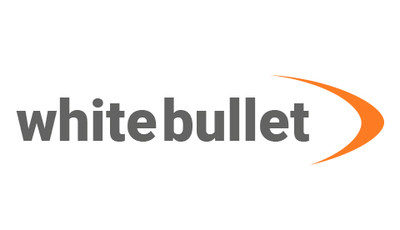Information Age has partnered with Tech Nation to help explore 20 of the UK’s leading cyber security scaleups.
Tech Nation Cyber is the UK’s first national scaleup programme for the cyber security sector. It is aimed at ambitious tech companies ready for growth.
In a series of 20 company profiles, we will be introducing you to the cyber security scaleups that make up Tech Nation’s first cyber cohort.
5. White Bullet
All answers provided by Peter Szyszko, founder and CEO of White Bullet
What does your company do?
White Bullet is an intellectual property and data analytics company offering risk analysis and brand safety solutions. We track intellectual property (IP) infringing websites and apps, using AI to assess and score them in real-time, whilst capturing the advertising funding them. Our global analytics platform includes a dynamic trust index that gives transparency across online IP infringement, protecting and guiding brands and media companies to avoid high risk publishers and maximise ROI, securing their digital supply chains. It also gives valuable insight to industry and enforcement bodies on IP infringement risk.
Through our unique data, our mission is to detect and demonetise online piracy.
How do you differentiate from your competitors?
Our founders are anti-piracy and IP enforcement lawyers, investigators and technicians. So the very heart of what we do is founded on the legal data and investigative know-how that accurately assesses what makes a platform illegal versus incidentally infringing. Unlike other companies that analyse web page content, we use AI to assess over 400 data points to accurately identify IP infringement in real time, with the ability to verify infringement. We also apply optical image processing and natural language processing to assess and predictively score as well as to identify billions of ads that fund these platforms. We have created a unique risk index that can be applied much like a dynamic and constantly updated credit score for websites and apps. This help advertisers and many more parties to understand the risk profile of a web page or app at any given time and provides transparency on misaligned ad placement.
No other company has a laser focus on online IP analysis in real time or a means to simultaneously demonetise these scored platforms at the ad bidding process. We are also thought leaders that sit on governmental and industry expert groups on piracy and advertising transparency and advise amongst others the UK government and EU Commission in this area. So we really know how to find the pirates and how to stop the ad revenue.

What are the common challenges in the cyber security space?
Digital piracy is an easy way to make money from illegal and unauthorised distribution of other people’s content. Over 90% of pirate sites have a form of ad revenue (and 96% of illegal streaming sites have premium branded ads). A similar percentage have some form of malware embedded in their pages to attack visitors. Piracy is therefore itself a cyber security threat when you consider that over half of millennials regularly use pirate sites and studies show billions of illegal downloads and streams each year. The innocent sounding notion of getting some content for free is actually putting users at risk, as well as the networks they operate in, damaging brands whose advertising is misplaced on these illegal platforms and funding criminals. This is because the pirate platform operators are adept at stealing data and generating vast sums of ad revenue from the billions of visits they get when users come to access the illegal but popular content they tout.
The parties that set up and operate illegal sites and apps are technically savvy and desperate to secure as much revenue as possible before enforcement action targets their platforms. So, they make every effort to disguise their activities whilst remaining publicly accessible and easy to find in order to get user traffic and eyeballs which equates to ad revenue and potential opportunity for data theft.
A significant challenge is keeping track of the disguises. These include pirates masking their sites as innocent or related to content from different sectors, so our algorithms need to detect the metadata that unmasks them. Others change domain regularly or swiftly redirect to new locations to avoid becoming too static and falling onto enforcement radars. These changes can happen as often as the few minutes it takes to stream a live sports event. Nearly half pirate sites have some form of malware or malicious code in the advertising and over 95% of the top sites have malware in the page code. This poses a threat to the visitors to the platforms who are unaware of this hidden menace. But it’s all part of manipulating the cyber world to maximise revenue. The malware found can be anything from spyware and adware to trojans and keyloggers to initiate blackmail threats or steal financial data from hard drives. White Bullet’s system detects this malware and also the click generator ad fraud applied which mimics millions of fake interactions with a web page to gain more payment for ad views.
Pirates are tech savvy. They know how to make money and evade enforcement. This means they can turn their attention to fighting the good guys. Therefore, keeping up to date on the latest threats and techniques they use is key to avoiding getting caught in their traps. Securing our own platform against malicious attack or challenge is critical.
Infringing intellectual property — an issue for brand safety and security
What are the biggest mistakes a company can make regarding security?
This question is perhaps less relevant in the context of piracy. However, piracy and IP infringement online does affect companies. Visitors to pirate sites who are accessing content from company networks are putting those networks at risk. Another example includes many academics and research fellows who turn to pirate content hubs to access research papers, academic publications or literature that is being distributed illegally. The reason they do it is because the content is offered for free. But in reality there is a cost. The pirates are not charitable, and of course seek to make money from any means possible. University and company networks are at risk of spying or data theft when parties interact with these pirate platforms. One of the biggest mistakes is simply assuming piracy can be ignored or provides a free alternative to safe legitimate content. Having robust procedures and policies in place to educate teams and staff is critical to avoid attack as this is a soft target and vulnerability
Provide your best practice advice/top tip for effective cyber security?
Always get your content from legitimate and safe sources. Don’t assume pirate sites and apps are doing you a favour by giving away content…. they will get you in one way or another. If you are a company, a university or research institute filter pirate sites from your Internet access – tools now exist including White Bullet’s dynamic piracy database. If you are a brand, make sure you know where your ads are being placed and what you are funding: advise your ad brokers to filter piracy. Real time ad blocking for piracy is available from White Bullet.
What’s next?
Piracy is evolving. First pirate apps are on the rise, sometimes available in the large app stores and other times off-market. Pirate website operators already set up tens of related apps to drive traffic to content on their servers. With 5G now available and the ability to download a 4K UHD movie in just a few seconds, you can expect mobile piracy to get a caffeine injection. Second, social media is now a key driver for finding infringing content: links are posted in social media platforms which may be time sensitive, for example only active during a live streaming music or sports event. This obviates the need for static sites that continually host links or content and instead favours “burner” URLs or apps that exist for short periods before being deleted. Others are masked, innocent-looking domains loaded with legitimate and innocent content (like recipes or health blogs) that later inject pirate content only at certain times for brief periods, again driving user traffic from social media and content blogs. So, the new frontier in this highly dynamic world is to reduce the traffic from social media and search, by demoting or filtering these temporarily infringing links. Tradition enforcement looks for static, known platforms, whilst irregular crawling finds infringing content that is permanently on display. White Bullet is leading the charge in dynamic real time assessment to find the content as it appears – and as advertising is being placed there – to prevent revenue streams and demonetise this threat to creators, users and networks.
White Bullet is part of Tech Nation Cyber — the UK’s first national scaleup programme for the cyber security sector. It is aimed at ambitious tech companies ready for growth.







